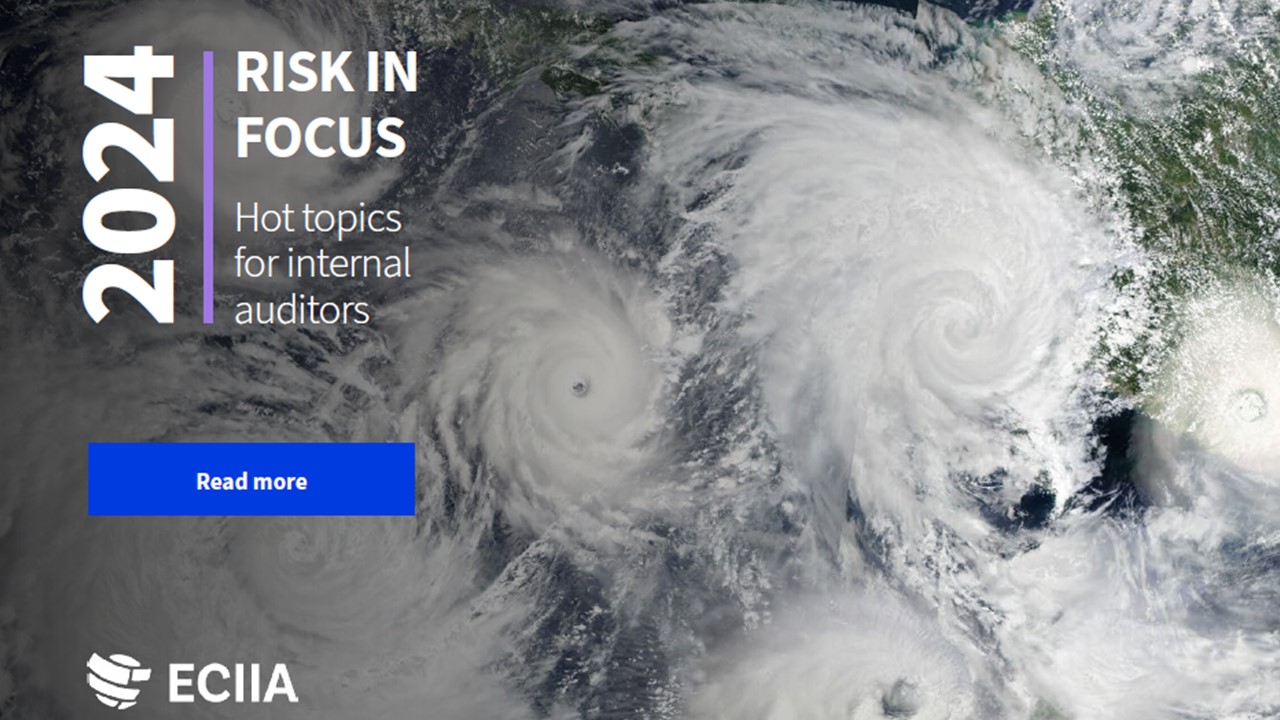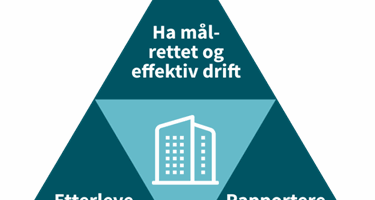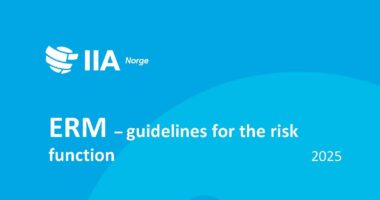Businesses facing a poly-crisis reveals the result of a survey of 700 Chief Internal Auditors across Europe.
A major research report has revealed a looming poly-crisis as a series of high-impact risk events are occurring simultaneously and exacerbating a multitude of interconnected risks. This includes ongoing economic uncertainty, the cost-of-living crisis, the Ukraine crisis and growing geopolitical turmoil, labour shortages, along with extreme weather events fuelled by the climate crisis.
These are the findings revealed in Risk in Focus – the Internal Auditors’ annual Risk in Focus report produced in partnership with 15 European Institutes of Internal Auditors. Risk in Focus 2024, published today, is the result of a survey of over 700 Chief Internal Auditors across Europe on the risks their businesses are expecting to face in the year ahead.
The report calls on boards to collaborate with internal auditors to navigate the poly-crisis by having an unwavering focus on organisational resilience and working together to respond rapidly to the myriad of immediate and fast-moving risks businesses now face.
The headline research findings include:
- As organisations continue to grapple with an increasingly weaponised cyber-attack landscape cybersecurity is the biggest persistent threat according to our research. 84 % of respondents voted cybersecurity as the number one risk for the sixth year in a row. This is no surprise given recent high-profile cyber incidents, including the ransomware attack that impacted the payroll software provider of several well-known companies, coupled with an increase in so-called “wiper attacks” from state-sponsored actors.
- Off the back of the pandemic, organisations are continuing to face a human resources crisis, with 58 % voting human capital, diversity, and talent management a top risk, making it the second biggest risk. This reflects ongoing labour shortages in key sectors of the economy, as businesses struggle to fill vacant positions and retain talent.
- Set against a fragile economic backdrop of stubbornly high inflation and rising interest rates, coupled with the War in Ukraine and rising geopolitical tensions, 43 % cite macroeconomic and geopolitical uncertainty as a top risk.
- With the poly-crisis stress testing business continuity plans, 35 % cite business continuity, operational resilience, crisis management and disasters response as a top risk.
- As high-speed technological developments like Artificial Intelligence pose a new and emerging threat, a third (33 %) cite digital disruption and new technology as a top risk, although this is forecast to rise to 50 % in three years’ time.
- With two of the hottest European summers on record and climate-related disasters happening around the world, almost a third (31 %) cite climate change as a top risk. However, this is set to rise further still to over half (53 %) in just three years’ time.
Risk in Focus 2024 makes several recommendations to boards and their internal audit functions on how to navigate the poly-crisis:
- Boards and their internal auditors should work together to build greater organisational resilience. This should include testing risk and mitigation strategies using scenario run-through exercises to identify inter-related risks that could otherwise remain hidden.
- Boards should ensure their internal auditors evaluate the organisation’s cybersecurity awareness and training programmes and assess whether those are effective.
- Boards should ask their internal auditors whether the assumptions made on financial stress testing align with reality and whether economic scenario planning and simulation exercises are awake to emerging risks.
- Boards should harness the skills of their internal auditors to assess whether the organisation’s values and objectives align and are clearly communicated within and outside the business to engage with potential and existing talent.
- Boards should ask their internal auditors to assess whether environmental sustainability goals are aligned with business strategy and have clear metrics.
The full report is available here.
The top 10 risks for Risk in Focus 2024 are
- Cybersecurity and data security (84 %)
- Human capital, diversity, talent management and retention (57 %)
- Macroeconomic and geopolitical uncertainty (43 %)
- Change in laws and regulations (43 %)
- Business continuity, operational resilience, crisis management and disasters response (35 %)
- Digital disruption, new technology and AI (33 %)
- Climate change, biodiversity and environmental sustainability (32 %)
- Supply chain, outsourcing and ‘nth’ party risk (30 %)
- Market changes, competition and changing consumer behaviour (30 %)
- Financial, liquidity and insolvency risks (26 %)
About Risk in Focus 2024
- For the past eight years, Risk in Focus has sought to help Chief Internal Auditors understand how their peers view today’s risk landscape as they prepare their audit plans for the year ahead.
- Risk in Focus 2024 research was conducted in March and April 2023. Data was collected through a quantitative survey among Chief Internal Auditors across 17 European countries which included: Austria, Belgium, Bulgaria, France, Germany, Greece, Hungary, Italy, Luxembourg, The Netherlands, Norway, Poland, Spain, Sweden, Switzerland, and the UK & Ireland. The survey elicited 799 responses.
- Simultaneously, five roundtables were organised with 46 participants on each of the risk areas covered in the report. In addition, we also conducted 11 one-to-one interviews with subject matter experts that included Chief Internal Auditors, Audit Committee Chairs and industry experts to provide deeper insights into how these risks are manifesting and developing.




